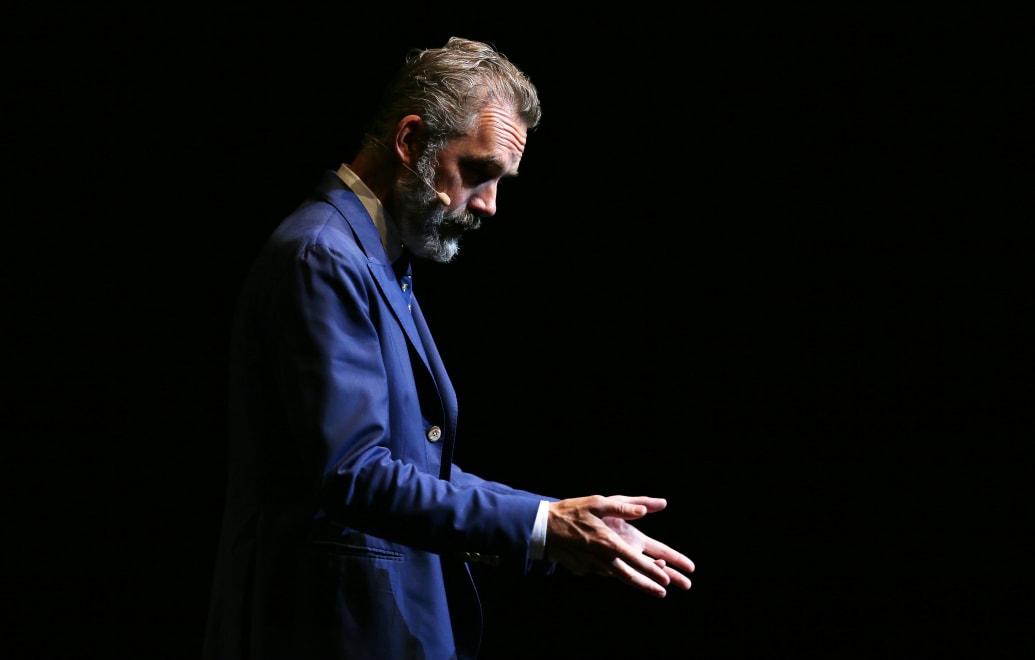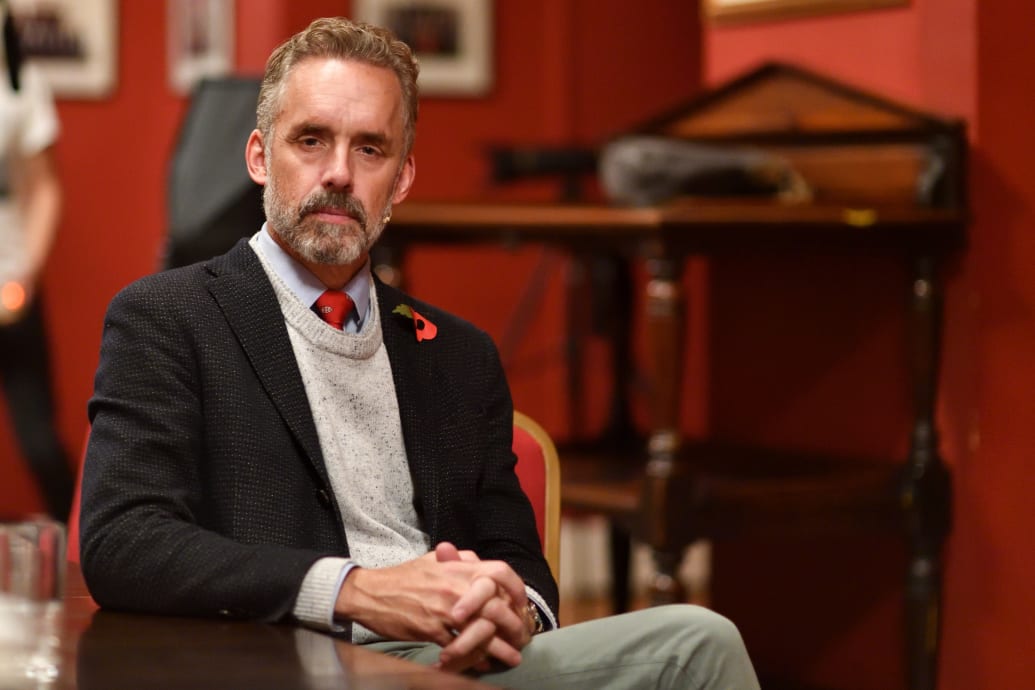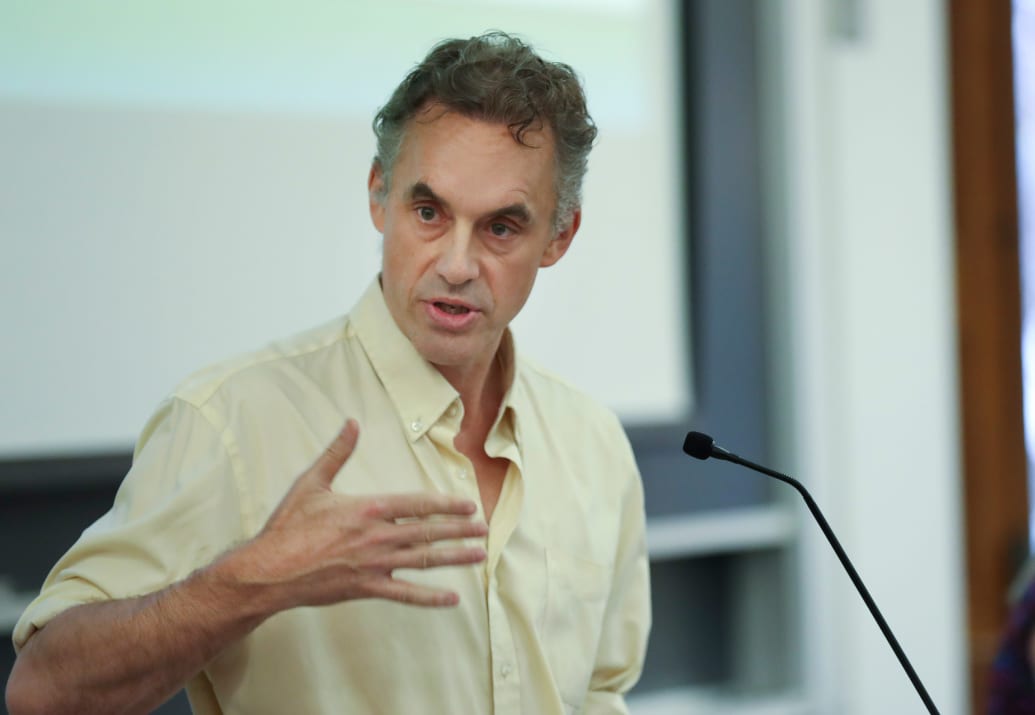. Of course, a moment’s thought would complicate this distinction, given that one generation’s outcomes are the next generation’s opportunities. (Compare the life prospects of Jeff Bezos’ children and the children of the workers at his warehouses—never mind the children of people who aren’t even lucky enough to have those jobs.)
And we could ask deeper questions about what “equality of opportunity” really means. Socialist philosopher G.A. Cohen, for example, argued that the deepest kind of “equality of opportunity” would be incompatible with capitalist markets that often distribute outcomes on the basis of dumb luck.
But as unconvincing and politically reactionary as all of this was, Peterson in 2019 wasn’t Ben Shapiro. Even when he spoke out against Bill C-16, Peterson said that his only issue was about free speech and that he would personally be respectful enough to call his students by their preferred pronouns within reason. (He drew the line at ze/zir and the like.) And he sometimes waxed poetic about the cosmic need for balance between the Left and the Right.
These days, he literally works for Ben Shapiro’s media organization The Daily Wire. And the reason Musk had to intervene to restore him to Twitter was that he’d been suspended for a tweet obnoxiously referring to trans actor Elliot Page as “she”—a tweet that struck some observers as designed to provoke an attention-grabbing suspension. Indeed, Peterson could have un-suspended himself whenever he liked by deleting the offending tweet, but he melodramatically claimed that he’d “rather die” than do so.
Whatever ambiguity there used to be about his political position, it’s a distant memory.
Peterson and the Right
In a recent interview with Piers Morgan, Peterson criticized Donald Trump’s personality but defended the former president’s policy record on the grounds that he hadn’t started any wars and that he was good for “the working class.” But he said that he’d personally prefer that Florida Gov. Ron DeSantis be president next time.

Don Arnold/Getty
The claims about Trump’s record are ludicrous.
If the United States didn’t start any new full-scale wars during the four years that Trump was president, it also didn’t start any during the last four years of Obama’s presidency. And Trump’s record was anything but dovish. He tore up the Iran nuclear deal, assassinated Iranian general Qassem Soleimani, and brought us closer to all-out war with that country than we’ve been since the hostage crisis. He doubled the rate of drone strikes in Yemen. And while he committed himself to theoretically withdrawing from Afghanistan in his second term, I have my doubts about whether he ever would have ripped off the band-aid.
If anything, the claims about Trump helping the working class are even more absurd. His signature domestic policy accomplishment was a sweeping tax cut for the rich. He filled the National Labor Relations Board with hard-core union-busters. And for all his bluster about “bringing the jobs back,” as left-wing commentator Kyle Kulinski tried to explain during Peterson’s recent appearance on his podcast, the Trump administration saw a net loss of American manufacturing jobs. And of course, Peterson’s preferred candidate, Ron DeSantis, would govern in precisely the same way. If anything, DeSantis—by virtue of not being as frenetic and unstable as Trump—would probably do a better job of carrying out the economic agenda of the Chamber of Commerce.
And this gets us to the giant contradiction at the heart of Peterson’s politics. He regularly moves himself to tears when talking about the confused and alienated young men who come to him for advice. These men, he tells us, don’t have fulfilling lives. And he has a lot of ideas about how they can get them—starting with rules like standing with your back straight, cleaning your room, and focusing on advancing through life instead of criticizing the world around you. And as you might expect given Peterson’s preoccupations, he’s a big fan of marriage and child-rearing. Dabbling in criticizing the world around him after all, Peterson has argued that our culture doesn’t do enough to “enforce” sexual monogamy.
“Jordan Peterson could lend his considerable megaphone to those efforts—for example, by speaking out on the side of the Starbucks workers who have unionized hundreds of stores in the U.S. and Canada and been met with ferocious (and often illegal) union-busting.”
But if these young men don’t feel a sense of security and stability and connection to others in their lives, the primary culprit isn’t feminism or casual hookups. We live in a deeply economically precarious society, where unionized cab drivers with benefits and retirement plans have been replaced by Uber drivers who the company is desperate not to have to classify as its employees. Even academics are far less likely to get jobs as tenure-track professors than to spend all their time driving around between three campuses where they have gigs as adjuncts. If they’re attracted to socialist politics, it’s less because they’ve been indoctrinated as “postmodern neo-Marxists” than because they don’t have health insurance.

Chris Williamson/Getty
According to a Pew study in 2019, among adults who cohabitate with a partner they aren’t engaged or married to but who would like to get married one day, the most commonly cited reasons why not are that either they or their partner isn’t “financially ready.” According to a survey published in The New York Times the year before, couples who want kids but don’t have them, or who haven’t had as many as they would like, cite primarily financial reasons for that, too. The most commonly cited reasons are almost all economic—“child care is too expensive,” “worried about the economy,” “can’t afford more children,” “waited because of financial instability,” “not enough paid family leave,” and “no paid family leave.” Out of the top eight most commonly-cited reasons, the only one that’s not straightforwardly economic is “want more time for the children I have”—and that one starts looking a lot more economic when we remember that the United States is the only nation in the developed world that doesn’t mandate that employers give workers even one lousy day of paid vacation per year.
It’s hard to imagine Peterson’s dream of “enforced monogamy” being realized in twenty-first century North America. (He’s clarified that he’s not saying that the state should force anyone to get married at gunpoint, which is nice, but he doesn’t really spell out what he does mean. Does he think we should go back to the days when unmarried couples had to pretend to get married to check in at hotels? If so, all I can say is “good luck with that.”)
What could really happen though is that we change material conditions in a way that would give young people who want to do the things that Peterson preaches a fighting chance at happiness.
Jordan Peterson could lend his considerable megaphone to those efforts—for example, by speaking out on the side of the Starbucks workers who have unionized hundreds of stores in the United States and Canada and been met with ferocious (and often illegal) union-busting. Or he could support the NDP in Canada and politicians like Bernie Sanders in the U.S. who want to enact policies that would give the working class far more material security.
Instead, he’s praised the policy record of the Trump administration—which was, in practice, a four-year orgy of tax cuts, union-busting, and deregulation. And he wants the next president to be Ron DeSantis, who was against a minimum wage hike that was overwhelmingly approved by voters in his state. In other words, he’s all-in for the politicians who want to make the problems he cries about worse.
He’s right that many young men—and while we’re at it, young women—don’t have much hope about their futures. But with friends like Peterson, they don’t need enemies.










